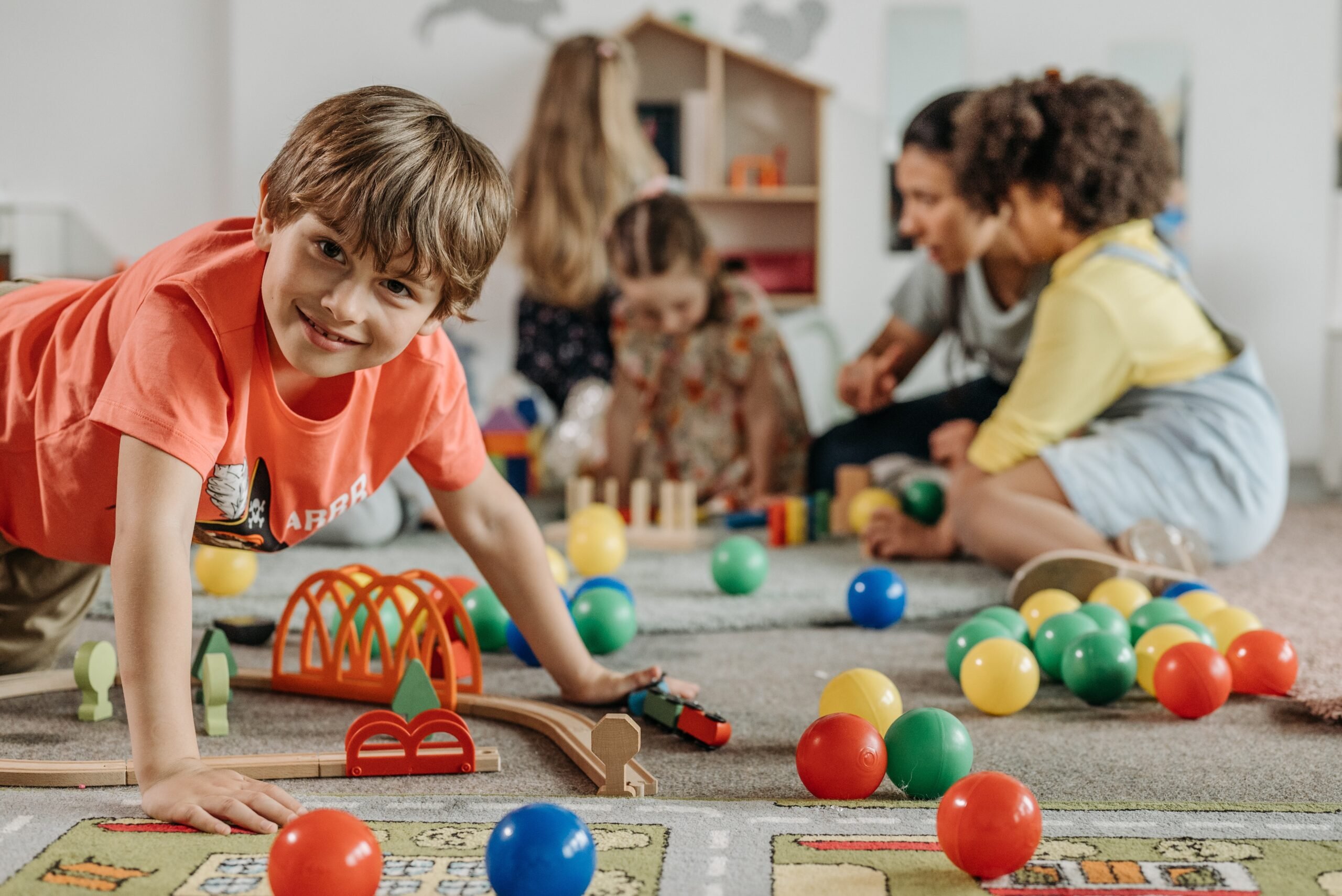Emotional regulation plays a major role in how children navigate their day—from managing transitions at school to handling frustration when something doesn’t go their way. When kids struggle to cope with emotions, they may have explosive outbursts, shut down or have difficulty connecting with others. These behaviors can be confusing or concerning for parents, but they don’t mean a child is being “difficult” or “defiant”. Many times, it’s a sign they can benefit from support in developing self-regulation skills. Occupational therapy can help! and occupational therapy can help.
What Is Emotional Regulation and Why Does It Matter?
“Emotional regulation” refers to a child’s ability to identify, manage and respond to their feelings in appropriate ways. It’s not about being perfectly calm all the time. It’s about learning how to navigate different situations and feelings with growing confidence. Emotional regulation can impact:
- Social relationships and peer interactions
- Focus and participation at school
- Behavior during transitions and new situations
- Overall mental outlook and resilience
When kids aren’t yet equipped to regulate emotions, it may present as emotional outbursts, avoidance, anxiety, or frequent tantrums. These behaviors often reflect an unmet developmental need, not intentional misbehavior.
Supporting regulation early can lay the groundwork for stronger relationships, ability to regulate emotions in different environments and situations, better problem-solving and greater independence as children grow.
How Occupational Therapy Builds Emotional Regulation Skills
Occupational therapy (OT) supports the development of essential life skills like getting dressed, staying organized and navigating everyday challenges. At More to Say, our pediatric occupational therapists look at the whole child, including how their nervous system processes sensory input, how they move through routines and how they respond to stress or changes in environment.
Here are some ways OT helps children build better emotional regulation:
-
- Teaching emotional vocabulary and expression: Many children struggle to understand and explain how they feel. Therapists help children identify emotions, learn coping tools, reflect on what is causing dysregulation, and more.
- Coaching self-regulation strategies: From deep breathing to mindfulness to seeking regulating sensory inputs, OT teaches practical tools children can use when emotions feel too big.
- Involving families in the process: Caregivers are an essential part of the team. Therapists work with families to support carryover at home and help build a toolbox of strategies for everyday life.
- Practice emotional regulation strategies in real time: OTs can facilitate practice of emotional regulation strategies during play and social interactions to promote use of these strategies with fading assistance.
- Incorporating sensory processing strategies: Some children become overwhelmed by sounds, textures, movement, or multisensory environments. Sensory overwhelm can lead to emotional dysregulation. OTs help children recognize and respond to sensory input to help them thrive in their daily activities and routines.
- Using movement to regulate the nervous system: Occupational therapists teach kids and caregivers how to use physical activity that provide sensory rich inputs to facilitate regulation in their daily tasks.
What Strong Emotional Skills Can Help Kids Do
When children struggle to manage their emotions, it doesn’t just impact their mood. It can interfere with learning, friendships and family routines. Children who can regulate their emotions are better able to:
- Resolve conflicts peacefully
- Stay on task at school
- Transition between activities with less stress
- Build stronger, healthier relationships
- Develop self-confidence
In fact, the Centers for Disease Control and Prevention (CDC) highlights emotional development as a key milestone for children of all ages. Emotional regulation is one of the foundational components of social-emotional health, which is closely tied to school readiness and academic performance. When children feel overwhelmed emotionally, even simple tasks like participating in group activities or listening to instructions can become difficult.
By helping children learn to regulate emotions early on and educating parents on how to facilitate emotional regulation development at home, occupational therapy can set the stage for a more successful, confident future both across different environments.
What Emotional Regulation Therapy Sessions Look Like
OT sessions at More to Say are built around fun, play-based activities designed to feel safe and engaging and not like work. Your child might:
- Practice calming skills during a sensory-based obstacle course
- Use stories to talk through emotions
- Explore different textures or movements to understand their sensory preferences
- Create a “calm down” strategy with favorite tools they can use when upset
- Talk about real-life situations like handling frustration or asking for help
Sessions are highly personalized, with therapists continually adjusting strategies to match your child’s development, response to treatment, and goals. Progress may look different for every child, but the goal is always the same: helping them feel confident navigating different situations in daily life.
Signs Your Child May Benefit from OT for Emotional Regulation
You don’t have to wait for a diagnosis or a referral to seek help. Many families seek OT when noticing:
- Frequent emotional outbursts or meltdowns
- Trouble transitioning between activities
- Overreaction to sounds, textures or crowds
- Difficulty expressing emotions or needs
- Withdrawal, shutdowns or anxious behavior
- Trouble following adult instructions
If any of these signs sound familiar, an occupational therapy evaluation can help identify what’s going on and if OT would be beneficial. Early support makes a big difference—and it’s never too early to start building these foundational skills.
Let’s Talk About Your Child’s Needs
At More to Say Pediatric Development & Therapy, our experienced occupational therapists work with families to build personalized, strengths-based plans that promote emotional growth and daily success.
If your child struggles with emotional regulation, support is only a phone call away. Call us at (203) 828-6790 to schedule your child’s occupational therapy evaluation or free phone consultation or today.


